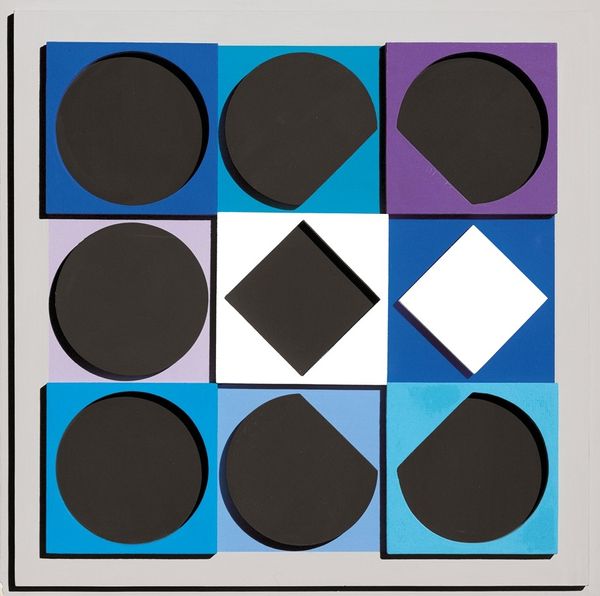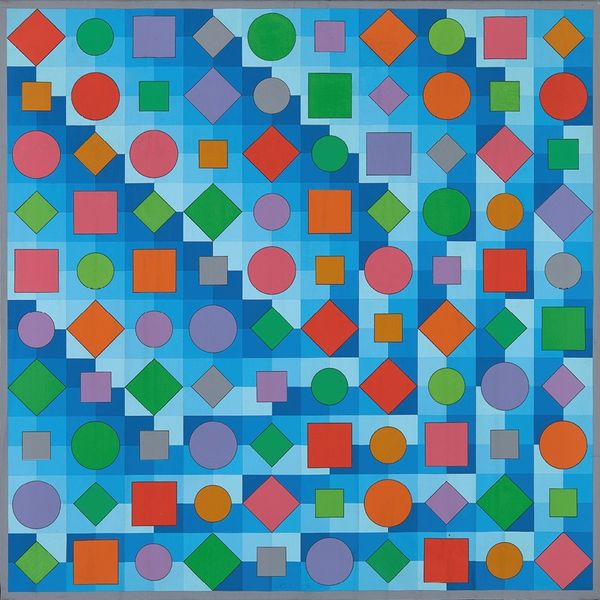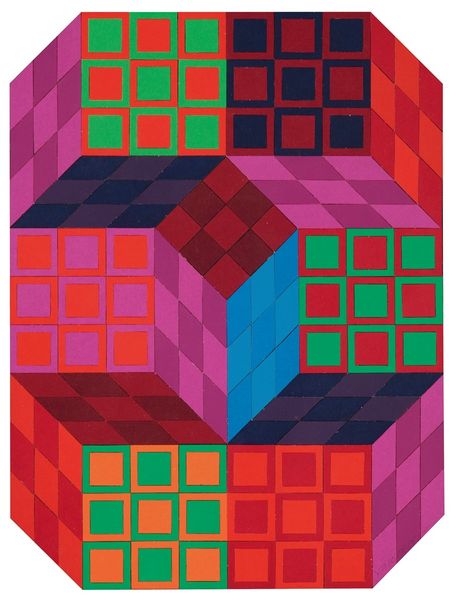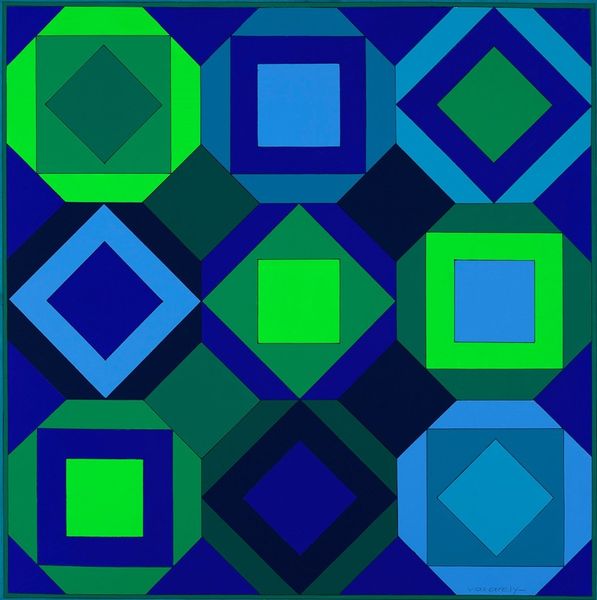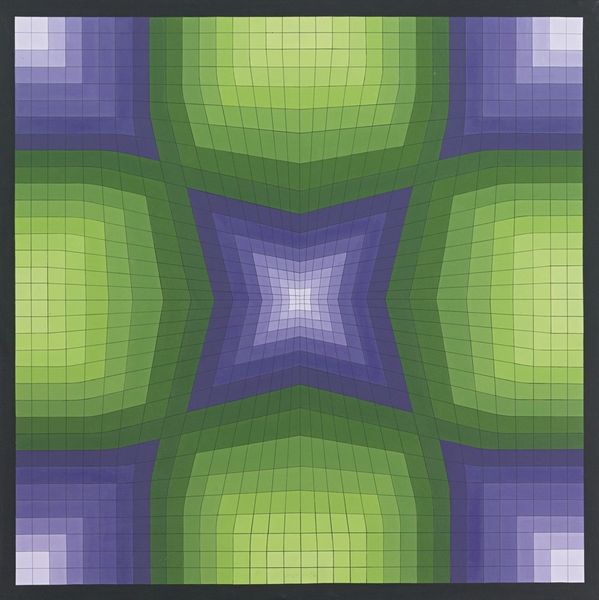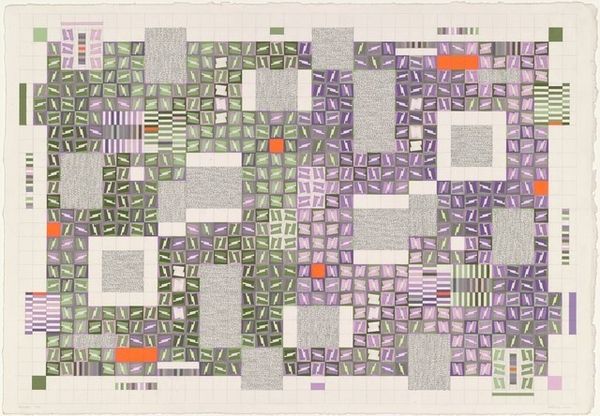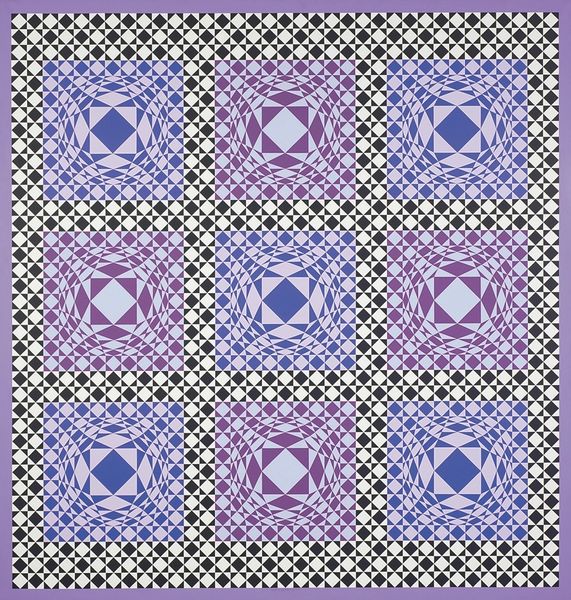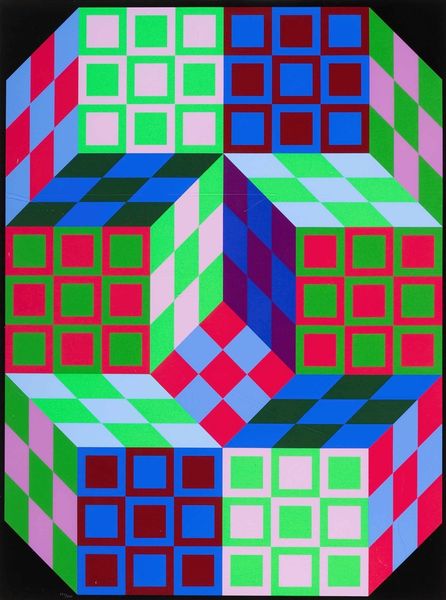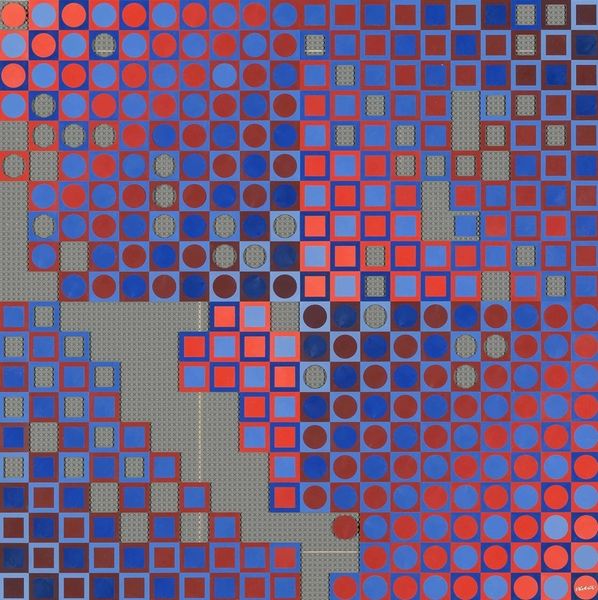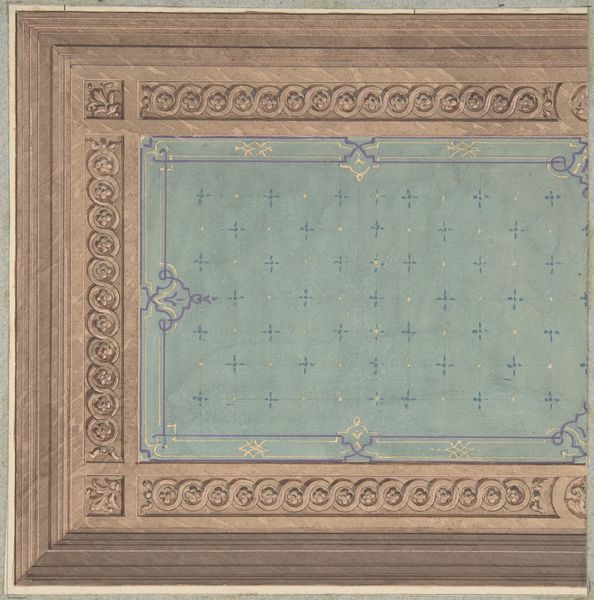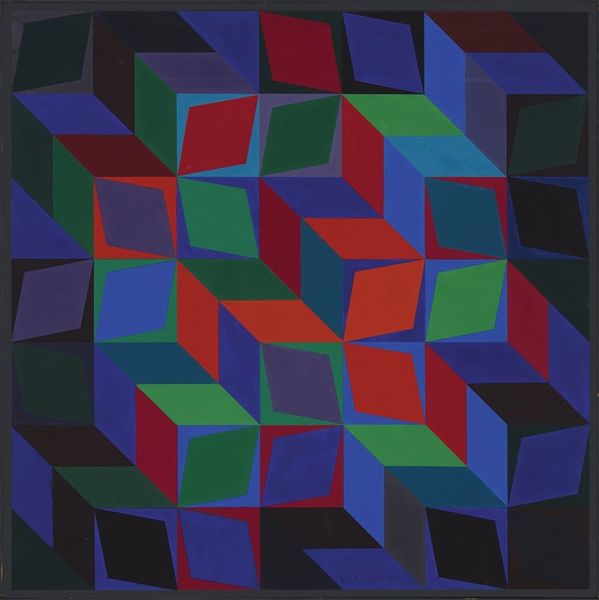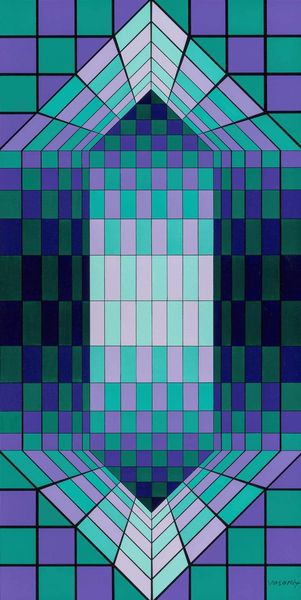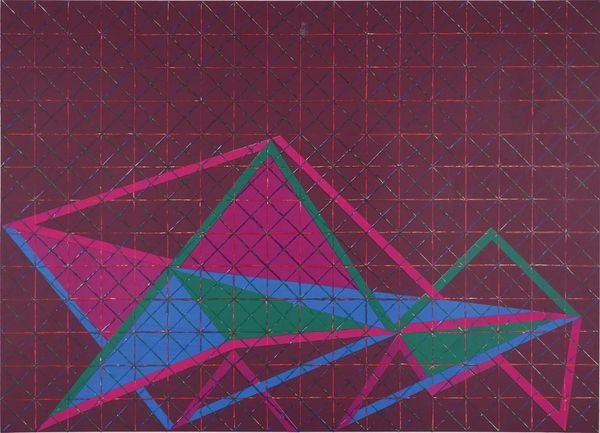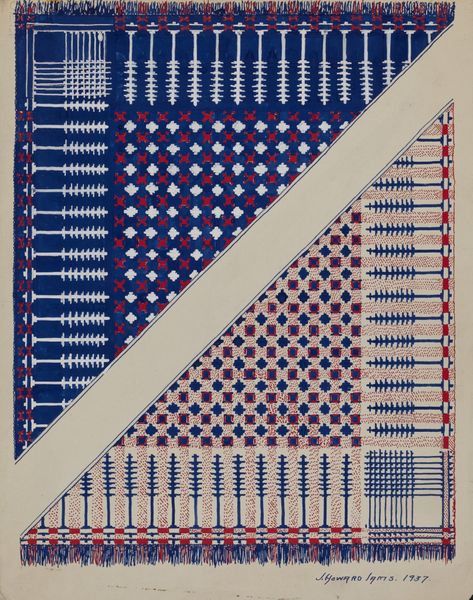
painting, acrylic-paint
#
pattern heavy
#
op-art
#
repeated pattern
#
painting
#
acrylic-paint
#
abstract
#
geometric pattern
#
abstract pattern
#
geometric
#
geometric-abstraction
#
repetition of pattern
#
vertical pattern
#
regular pattern
#
pattern repetition
#
layered pattern
#
combined pattern
Copyright: Modern Artists: Artvee
Editor: We are looking at Victor Vasarely’s “Sonora-Kat” from 1984, created using acrylic paint. It’s a striking, geometric composition! The color palette feels very retro, and there's a real sense of visual play because the overlapping geometric patterns create an illusion of depth. What jumps out to you? Curator: Immediately, I note the intricate interplay between figure and ground. Vasarely masterfully uses contrasting colors to create a dynamic visual field. Do you observe how the interlocking geometric shapes refuse to settle into a fixed spatial arrangement? The ambiguity between foreground and background is deliberately destabilizing. Editor: Yes, I see that now! It’s like the shapes are constantly shifting and vibrating. So, would you say that the impact is purely visual, or does it evoke other associations? Curator: Formally speaking, the work is driven by a logical and systematic exploration of geometric forms and color relationships, carefully calibrated to achieve an optical effect. Observe, for instance, how Vasarely utilizes various geometrical components and combines different colors to stimulate and then manipulate our perception. This creates both spatial compression and expansion. Editor: It is so interesting how the artist uses the shapes to trick my eye. Are there other artistic trends from that time where artist played with depth or used basic geometry like Vasarely did? Curator: Certainly, it echoes earlier experiments within Op Art, playing on perceptual illusions through pattern and contrast, whilst building its unique visual language. Editor: That’s really fascinating. Thanks for pointing out these details. I'm walking away from our talk with a much richer perspective of Op Art than I had previously. Curator: Indeed. It is important to study all elements within a canvas to have a deeper understanding of it and appreciate the art to the fullest.
Comments
No comments
Be the first to comment and join the conversation on the ultimate creative platform.
